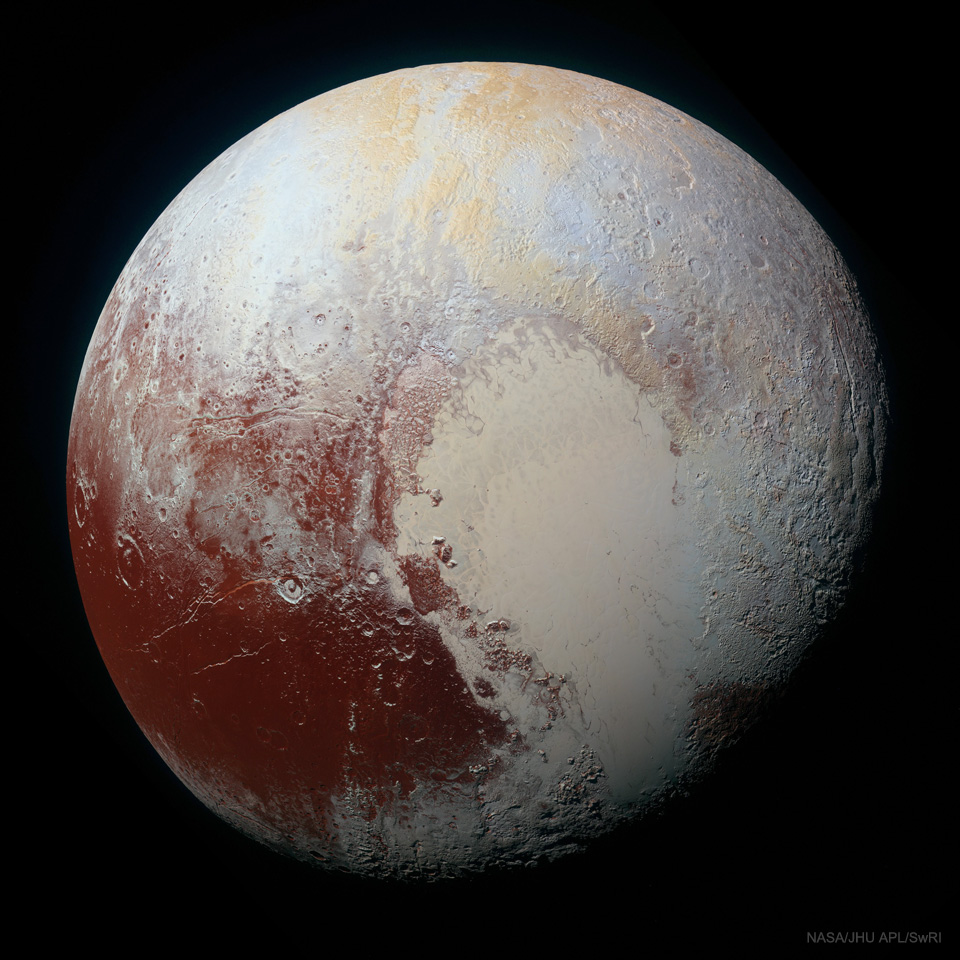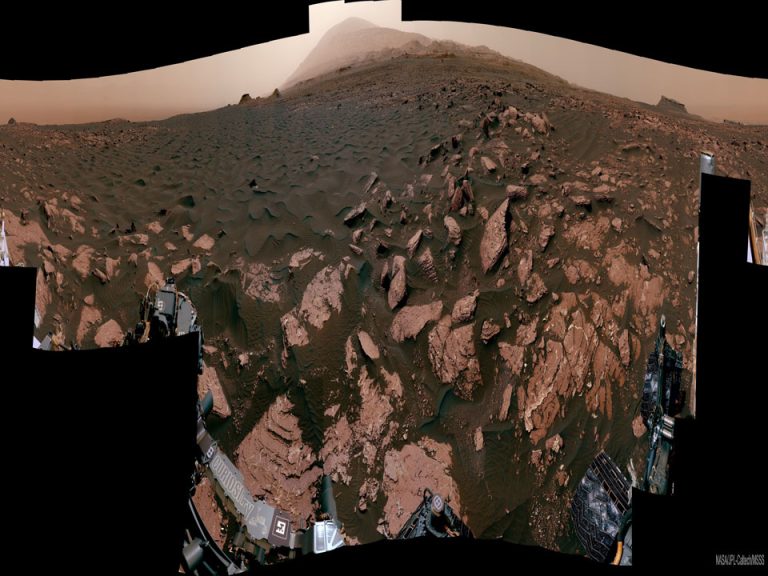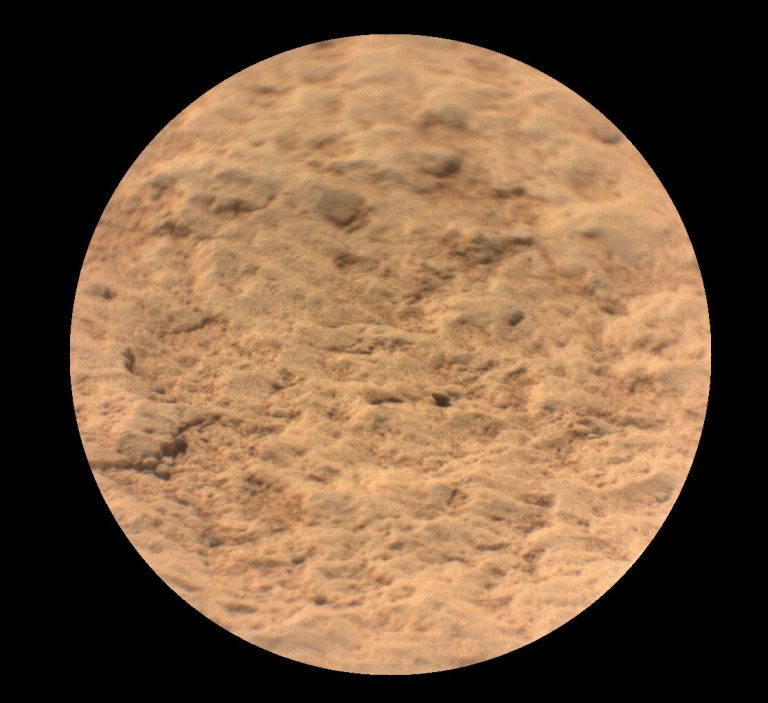2021年8月1日
Pluto in Enhanced Color
Image Credit: NASA, Johns Hopkins Univ./APL, Southwest Research Inst.
Explanation: Pluto is more colorful than we can see. Color data and high-resolution images of our Solar System’s most famous dwarf planet, taken by the robotic New Horizons spacecraft during its flyby in 2015 July, have been digitally combined to give an enhanced-color view of this ancient world sporting an unexpectedly young surface. The featured enhanced color image is not only esthetically pretty but scientifically useful, making surface regions of differing chemical composition visually distinct. For example, the light-colored heart-shaped Tombaugh Regio on the lower right is clearly shown here to be divisible into two regions that are geologically different, with the leftmost lobe Sputnik Planitia also appearing unusually smooth. After Pluto, New Horizons continued on, shooting past asteroid Arrokoth in 2019 and has enough speed to escape our Solar System completely.
Pluto-Related Images with Brief Explanations: APOD Pluto Search
Tomorrow’s picture: deep galaxy sounds
冥王星的色泽强化影像
影像提供: NASA, Johns Hopkins Univ./APL, Southwest Research Inst.
说明: 冥王星的色泽多于我们可见。在2015年7月飞越之时,由新视野号太空船所拍摄的“太阳系最著名矮行星”之彩色数据和影像,最近使用数值方法加以整合,制成这个意外具有年轻表面的古老天体之强化影像。这幅色彩强化组合影像,除了赏心悦目之外,也具有科学价值。例如影像右下角的淡色心形汤博区,可区分成二个地理上有明显差异的区域,而最左侧的史泼尼克平原看来异常平滑。在造访冥王星之后,航速足以脱离太阳系的新视野号持续曳航,于2019年掠过小行星阿罗克斯(2014 MU69)。
冥王星相关图像和简要说明:在APOD中搜索冥王星
明日的图片: deep galaxy sounds







